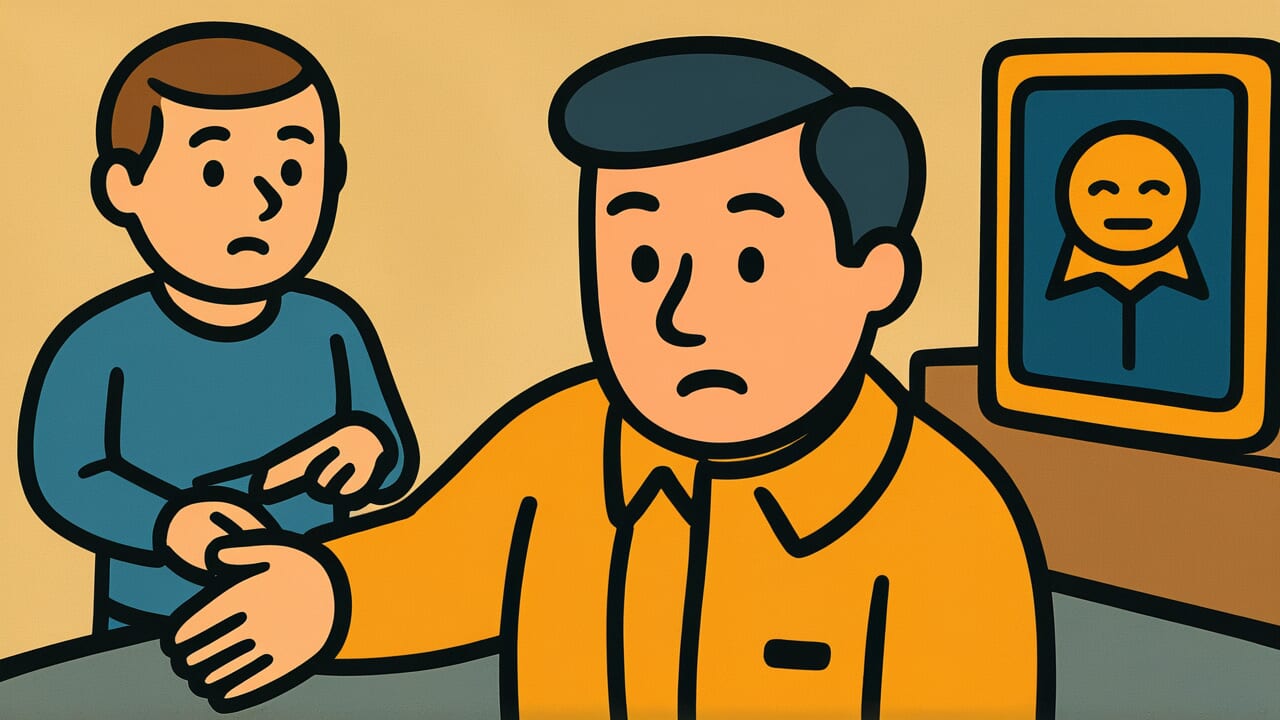How to Read “Knowing shame is close to courage”
Haji wo shiru wa yū ni chikashi
Meaning of “Knowing shame is close to courage”
This proverb means that recognizing your own shame leads to true courage.
“Knowing shame” refers to honestly recognizing your mistakes, shortcomings, and weaknesses, then accepting them.
“Courage” here doesn’t mean being fearless. It means having the mental strength to face yourself honestly.
Many people try to hide their failures and flaws. But those who can face them directly are truly strong.
People who can acknowledge their shame learn from it and grow. Those who can’t acknowledge it repeat the same mistakes.
This proverb is used when someone admits their failure honestly or confesses their weakness openly.
It praises such actions and recognizes them as truly courageous behavior.
Even today, this spirit lives on when we value people who can self-reflect or apologize sincerely when they should.
Origin and Etymology
The exact source of this proverb has several theories. It likely formed in Japan under the influence of Chinese classical thought, especially Confucianism.
The idea of connecting “shame” and “courage,” two seemingly opposite concepts, is deeply rooted in Eastern moral philosophy.
Confucianism positioned “the heart that knows shame” as the foundation of human morality.
Confucius’s teachings repeatedly emphasized the importance of recognizing your own mistakes and shortcomings.
Meanwhile, “courage” meant not just physical bravery but the mental strength to do what’s right.
What’s interesting is how these two concepts connect. Many people think courage means “not being shamed.”
But this proverb presents the opposite view. Facing your weakness and failures, and accepting them as shame, is true strength.
In Japan, this connected with the spirit of bushido and was valued as an attitude of strict self-discipline.
Japanese spiritual culture values inner sincerity over superficial bravado. This culture nurtured this proverb.
Usage Examples
- He reported his mistake without hiding it—knowing shame is close to courage, what an admirable attitude
- Now that I can admit my failures honestly, I’m starting to understand what knowing shame is close to courage really means
Universal Wisdom
Humans have an instinct to protect themselves. When we fail or feel embarrassed, we unconsciously look for excuses and try to avoid responsibility.
This is part of our survival instinct, a natural reaction everyone has.
But this proverb teaches that going against that instinct is humanity’s true strength.
Why has this teaching been passed down through the ages? Because everyone has experienced how difficult it is to acknowledge their own shame.
The fear of wounded pride, of others thinking less of you—these are feelings that ancient people and modern people alike share.
What’s interesting is that this proverb doesn’t say “don’t feel shame.” Feeling shame itself is natural and even necessary for humans.
The question is whether you turn away from that shame or face it head-on.
Our ancestors understood this deeply. Only those who can acknowledge their weakness can truly grow.
And taking that first step requires greater mental strength than any physical courage.
This profound understanding of human nature is what gives this proverb its universal value.
When AI Hears This
In control engineering, “negative feedback” is essential for systems to remain stable without running wild.
For example, an air conditioner strengthens cooling when room temperature exceeds the set point and weakens it when below.
Without this mechanism to detect and correct errors, the room would become either scorching hot or freezing cold.
The same principle works in human behavioral systems. Not knowing shame is like a system with broken feedback functionality.
You can’t detect how much your behavior deviates from social standards, so reckless actions escalate endlessly.
This isn’t courage—it’s simply being out of control. Psychology research shows that lack of self-monitoring ability strongly correlates with impulsive dangerous behavior.
On the other hand, people who know shame constantly monitor their actions and detect deviations.
Because this negative feedback exists, the system can perform at its maximum within stable boundaries.
This means taking calculated risks when truly necessary. That’s real courage.
What’s fascinating is that the highest-performance control systems have the most sensitive sensors.
Fighter jet flight control systems don’t miss even slight attitude disturbances. That’s why they can perform near-limit maneuvers.
The sense of shame is a high-sensitivity sensor in human behavioral control.
Lessons for Today
In modern society, the spread of social media has made it increasingly easy to hide failures and shame.
We select only perfect-looking posts and delete anything inconvenient. But this proverb shows us a different path.
When you make a mistake at work, try acknowledging your responsibility first instead of immediately thinking of excuses.
When you hurt someone in a relationship, try apologizing honestly before justifying yourself.
It’s not easy. Your heart pounds and your pride hurts. But when you take that step, you become truly strong.
What matters is that knowing shame isn’t the end—it’s the beginning. Real growth starts the moment you acknowledge your weakness.
No one is perfect. Everyone has flaws and makes mistakes. Only those who can accept this fact can move to the next step.
Having the courage to know shame—that’s the first and most important step toward becoming a better person.



Comments